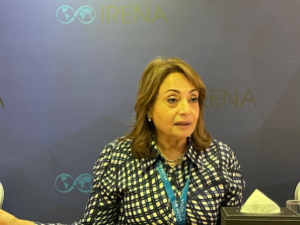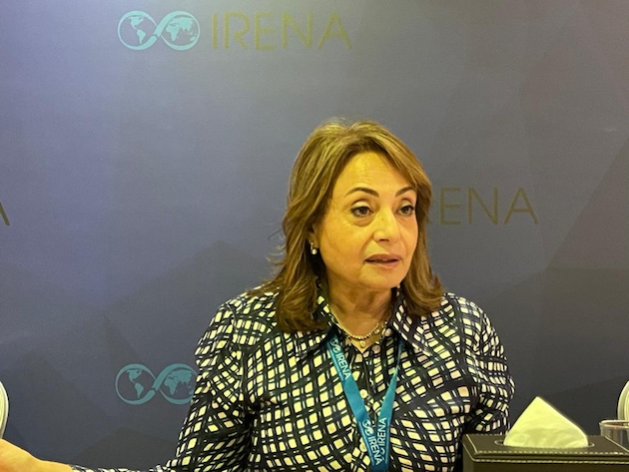
Civil Society, Climate Action, Climate Change, Environment, Featured, Global, Headlines, Human Rights, Humanitarian Emergencies, Sustainable Development Goals, TerraViva United Nations

The 60th session of the Subsidiary Bodies of the United Nations Framework Convention on Climate Change (SB 60, UNFCCC), took place in Bonn June 3-13, with the issue of climate finance high on the agenda. Credit: UN Climate Change Lucia Vasquez Tumi
– Despite the evident and increasing urgency of the climate crisis, the June intersessional meeting of the UNFCCC closed with little to show for two full weeks of negotiation.
With COP29 being cited as ‘the Finance COP’, much of the focus across various agenda items was on ever contested questions of who owes what to whom. Crucially, the meeting was supposed to advance negotiations on a New Collective Quantified Goal (NCQG) on climate finance for the post 2025 period, due to be agreed in Baku.
However, despite ‘quantified’ being in the very name of the goal, developed countries refused to be drawn on the critical matter of how much is owed and needed.
The 2020 goal of $100bn per year (stretched to 2025) remains unfilled, with the vast majority of what the Global North claims to have contributed in the form of loans, or money redirected from other overseas budgets.
Likewise, despite the long fought battle which secured a new loss and damage finance mechanism at COP27, that pot too remains as good as empty, with current pledges equating to less than 0.2% of the climate change related losses faced by Global South countries each year.
Climate finance is key. Intimately related to the core UNFCCC principles of equity and Common but Differentiated Responsibility (CBDR), it is central to unlocking the stalemate that has plagued negotiations since they began.
But instead of concrete finance commitments and delivery, carbon markets are increasingly being spun as climate finance, with some increasingly desperate nations on the frontlines of the climate crisis grasping wishfully at the idea that a 5% share of proceeds from markets under the Paris Agreement will plug the longstanding gap on adaptation funding, and others preparing to sell off their rich ecosystems as some form or other of carbon credits.
As the practical limitations, to say nothing of the social and environmental harms, of novel land based Carbon Dioxide Removal (CDR) schemes are increasingly exposed at a scale to impact the climate, Bioenergy Carbon Capture and Storage (BECCS), one of the most widely touted CDR technologies, would require twice the entire global land area currently under cultivation, oceans are being sized up as the next frontier for such exploitation.
Oceans cover over 70% of the Earth’s surface, and are already our greatest ally in the fight against climate change. Alarmingly, however, highly speculative and risky theories about engineering them at will to sequester and store ever more carbon are increasingly being incorporated into the climate policy landscape.
We see this in the opaque language that invites parties to scale up ‘ocean-based mitigation action’ that found its way into the Global Stocktake decision text last year in Dubai, and more clearly in the explicit inclusion of dangerous ocean CDR methods in the ongoing wrangling over Article 6 guidelines, which in various iterations identify ocean fertilisation, ocean alkalinity enhancement and algae cultivation / biomass sinking for potential inclusion.
And concerningly, we also saw it in this year’s Ocean and Climate Change Dialogue held in Bonn. Pitched as a “[recognition of] the need to strengthen the understanding of, and action on, ocean and climate change”, the Dialogue, now in its 4th year, saw a push for research and development of marine CDR under its theme on ‘Technology Needs for Ocean Climate Action, including Finance Links’.
The problem for those who would financialise and plunder the oceans under the guise of climate mitigation is that there are of course other UN Conventions of equal importance to the UNFCCC that have for good reason imposed restrictive regulations on these activities.
The Convention on Biological Diversity has had a de facto moratorium in place on all geoengineering since 2010, while the London Convention / London Protocol, which regulates pollution at sea, has made clear its intention to add potentially a further four categories of marine geoengineering to its 2008 prohibition on ocean fertilisation.
Crucially, a commercial factor is a key element under both regimes in restricting outdoor experiments – which of course is inherent in any ocean-based CDR envisaged under carbon markets, voluntary or otherwise.
The fact is, however, that none of the marine geoengineering approaches increasingly referred to as CDR do anything to tackle the root causes of climate change, and none have been able to demonstrate that they can effectively capture or store carbon with any permanence.
They are an extremely dangerous distraction from the real action we know is needed to rapidly bring down greenhouse gasses, starting with an urgent and just phase out of fossil fuels. Furthermore they are likely to cause great harm to the delicate equilibrium of the oceans – already severely stressed by over-exploitation, pollution and global heating – with potentially grave consequences for ocean biodiversity, food chains, fisheries, and even the oceans’ natural capacity to sequester carbon.
At least 40 open-water marine geoengineering experiments are currently underway or in planning, across a variety of theories and technologies, many of which have a clear commercial element and are likely in violation of international agreements. Some of these are already running into very practical challenges, such as the postponement of Planetary Technologies’ planned ocean alkalinity enhancement trial in Cornwall, where community resistance led to an independent assessment which exposed serious flaws in the plan, while biomass cultivation and sinking start-up Running Tide announced the closure of its fairly advanced operations only this last week, citing lack of demand for carbon credits from the voluntary market.
Ultimately however, as a broad spectrum of civil society organisations made clear in several interventions at the Ocean and Climate Dialogue, and in a statement endorsed by over 100 organisations as of last month, Paris Agreement carbon markets, which are so very clearly legitimising these highly speculative and risky approaches, cannot ignore international agreements restricting them and must uphold the precautionary principle.
As we head to COP29 in Baku and as IPCC kicks off its work on the 7th Assessment Cycle later this year, the voices of civil society across the globe, Indigenous Peoples, coastal communities and fisherfolk must be heard as they reiterate the risk of undermining the vital role oceans play in sustaining life on earth. It is unquestionably clear that our oceans cannot be for sale.
Mary Church is Geoengineering Campaign Manager, Center for International Environmental Law (CIEL) and member of Hands-Off Mother Earth! (HOME) Alliance.
IPS UN Bureau










 This is only the beginning of our journey to create a great momentum of youth standing up for a better future. As a next step to amplify youth voices, we plan to communicate with MOFA, a focal point of the Summit of the Future. We, the organizing committee, will also participate in the UN Civil Society Conference that will take place in Nairobi, Kenya in May, which is a key milestone for civil society to give their input to the Member States. We hope to convey the survey results to the co-chairs and UN high-level officials during the conference. In addition, at a national level, we will engage with the government, the UN, and like-minded organizations to contribute to the Pact for the Future in a meaningful way.
This is only the beginning of our journey to create a great momentum of youth standing up for a better future. As a next step to amplify youth voices, we plan to communicate with MOFA, a focal point of the Summit of the Future. We, the organizing committee, will also participate in the UN Civil Society Conference that will take place in Nairobi, Kenya in May, which is a key milestone for civil society to give their input to the Member States. We hope to convey the survey results to the co-chairs and UN high-level officials during the conference. In addition, at a national level, we will engage with the government, the UN, and like-minded organizations to contribute to the Pact for the Future in a meaningful way.


